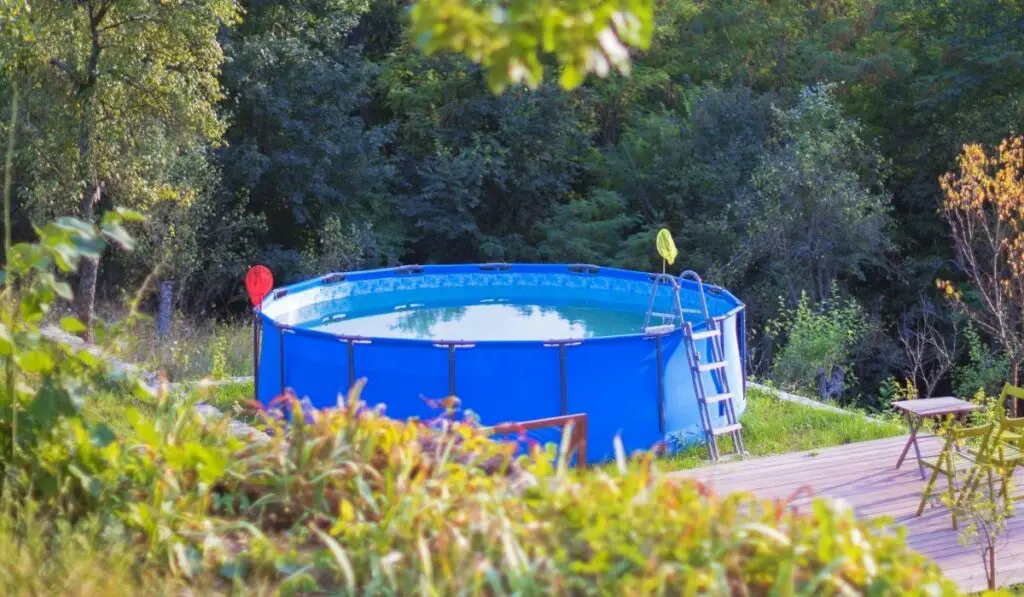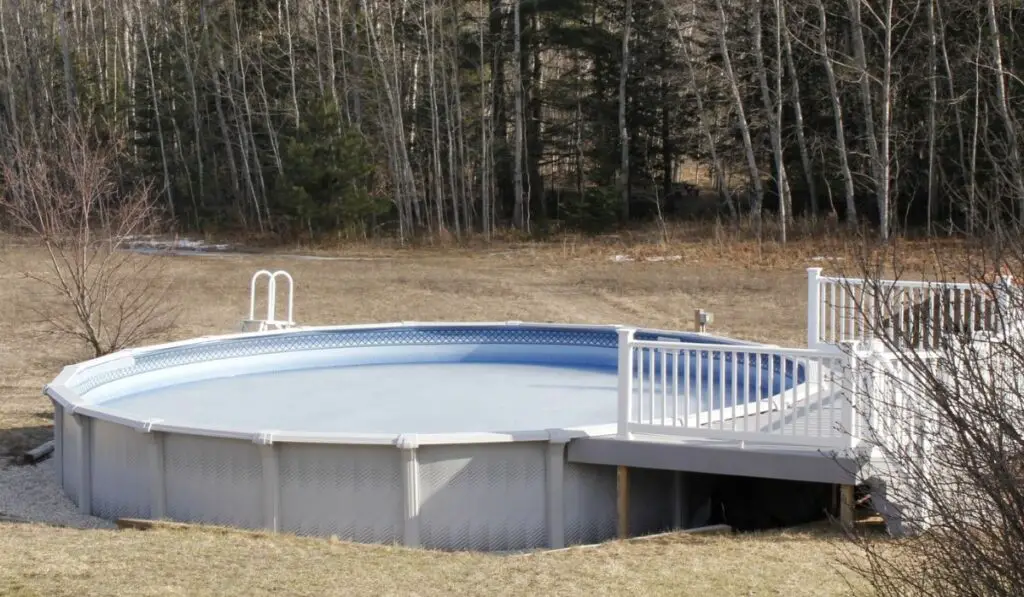As you dream about soaking in a brand-new above-ground pool in your backyard, concerns about operations and maintenance may cross your mind. One very common concern among potential above-ground pool owners is whether such pools use electricity.
Above-ground pools require electricity to power pumps, lights, and maybe a saltwater generator more. An electric pool heater may also be installed. The pool can’t function properly without some of these electrically powered parts, especially the water pump which circulates water through the filter.
Powering your pool is a delicate affair that must be done the right way to avoid electrocuting swimmers or overloading your household power connection. Let’s take a look at the electrical requirements of above-ground pools and the considerations you should to keep in mind when powering your pool.
Do Above-Ground Pools Run on Electricity?

Above-ground pools are affordable temporary installations that have minimal operational requirements compared to their in-ground counterparts. It is therefore understandable to assume that they can operate without electricity. Unfortunatley, that’s not the case.
Above-ground pools require electricity for several reasons including:
- Lighting the pool at night or powering LEDs for aesthetic reasons
- Powering a pool pump that circulates the water for filtration, sanitation, or heating purposes
- Heating the pool to allow swimming in cold weather, mornings, or at night
- Powering a saltwater generator/chlorinator (like this example on Amazon)
Without some of these electrical components, using a pool would be pretty difficult. The pump is especially central to the operations of any pool. Without it, the water quality would deteriorate very quickly.
There are several ways to connect electricity to your above-ground pool. These include:
- Using an extension cord: Most people plug an extension cord to any available receptacle outside of the house or on the patio and then plug their pool equipment into the extension cord. However, this type of connection is not recommended and should only be done temporarily.
Using a thick cord with a #12 wire, waterproofing the connections on the cord, and burying it altogether in conduit are some ways to make the connection safer.
- Using a properly sized and rated wire: Many pool owners install a breaker in the electrical box and run a dedicated line out to the pool pump. If you decide to DIY, you should use properly sized and rated wire and bury it 24 inches below ground — or 18 inches if the wire is in conduit.
Handy and knowledgeable pool owners are able to do everything to code and save a few dollars in the process. To avoid costly and potentially dangerous mistakes, it’s best to involve a licensed electrician.
In-Ground Vs. Above-Ground Pumps
Above-ground and in-ground pools use different pumps. These pumps have two key differences. The first is that in-ground pumps draw water upwards while above-ground pumps cannot.
In-ground pool pumps are also more powerful and require 240 volts (dual voltage), while above-ground pool pumps run on 120 volts.
Pumps for above-ground pools feature a standard three-prong plug and can be plugged into a regular electrical outlet. As we mentioned, many people plug them into extension cords connected to an outlet in the house.
The extension cord should have at least a #12-gauge wire so that it doesn’t overheat or burn up, and it should only be used a temporary solution.
A dedicated circuit/line/outlet is recommended since both in-ground and above-ground power pumps draw a lot of power.
Electrical Requirements for an Above-Ground Pool

Electrical installations in above-ground pools must be done according to the electrical code requirements. Local codes requirements vary from place to place but they usually don’t have significant deviations from the National Electrical Code (NEC) requirements. Some of the most important requirements include:
- Overhead electrical lines: Install your pool away from electrical lines to avoid accidents. If this is unavoidable, utility power lines running above the pool should be at least 22.5 feet above the water level. Communications cables should be at least 10 feet above the water level.
- Underground wiring: Underground cables shouldn’t run under the pool unless it’s serving equipment or lighting on the pool. The cables should also be no closer than 5 feet from the pool walls.
- Electrical outlet receptacles: Receptacles for motors and pumps must be GFCI-protected and locked and be located within 6 to 10 feet of the pool walls. The minimum distance between outlet receptacles for general use must be 6 feet away from a pool if they are GFCI-protected and 20 feet if they’re not.
- Maintenance disconnect: A visible emergency disconnect that shuts off power to pumps and other electrical equipment should be installed no closer than 5 feet from the pool.
Dedicated Circuit
As its name suggests, a dedicated circuit takes power from the electric box to only one destination and is not connected to other outlets or appliances.
Pool pumps require a lot of power to start up and run. If your pool pump is competing for electricity with other appliances, the breakers may constantly trip.
Plugging a pool pump to an extension cord connected to the outside receptacle of the house is not recommended since that receptacle is usually connected to other receptacles within the house.
When other appliances in the house are powered on while the pump is running, the line is quickly overloaded and the breaker trips.
Ground Fault Circuit Interrupters
A ground fault circuit interrupter (GFCI) is like a more sensitive breaker than the one in the power box. It’s an added protector used for any electric line that could be exposed to water. It’s supposed to protect people from getting badly shocked if the power line comes into contact with water.
By code, all bath and kitchen receptacles have to connect to a GFCI. This also applies to above-ground pools. Most equipment and devices serving above-ground pools must be GFCI protected. These include:
- Motors and controls for pool covers
- Underwater pool lights using more than 15 volts
- Outlet receptacles within 20 feet of the pool
- Outlet receptacles for pool pump motors
- Light fixtures less than 10 feet from the pool
Extra Outlets
In addition to the pool pump, other equipment that requires electricity includes ionizers, ozonators, salt chlorine generators, pool lights, etc. These add-ons don’t require much electricity to operate, so you won’t need to use a special wire size or to upgrade the breaker. They usually feature standard three-prong plugs that can be plugged into an ordinary outlet.
It’s also prudent to have a separate receptacle, preferably at the pool deck, to accommodate any electronics that swimmers may want to use like a TV, laptop, etc.
Final Thoughts
If you’re going to install an above-ground pool in your backyard, you’ll need electricity. While you can just plug your pool’s pump into an extension cord, it’s preferable to hire a licensed electrician to connect your pool to the power grid.
The electrician will assess the ability of your current electrical system to support electrical installations in your pool and determine the safest and most cost-effective way to make the necessary connections.
By all means, avoid cutting corners when it comes to making electrical installations and purchasing electrical components for your above-ground pool.
